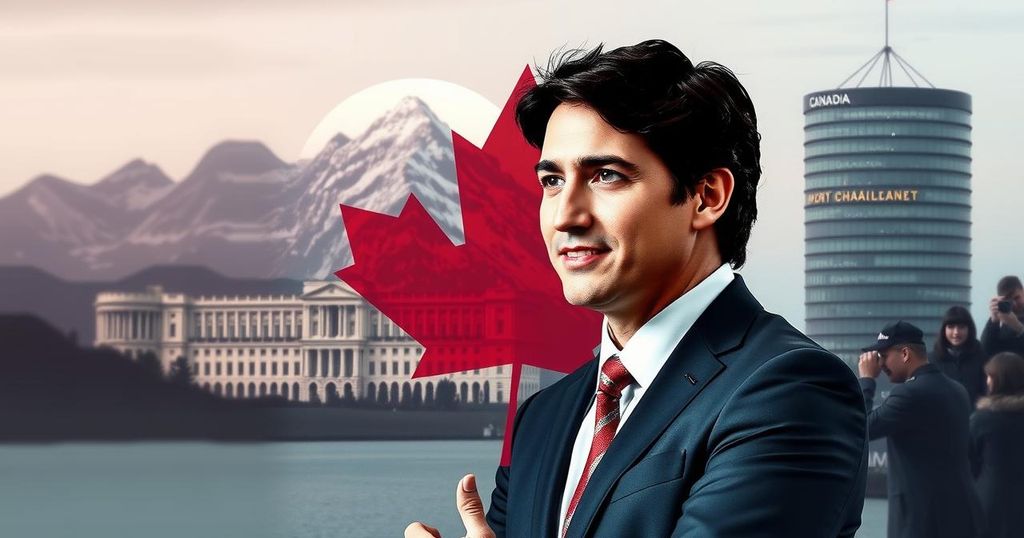Elon Musk’s Influence in Canada Amid Trudeau’s Resignation

The resignation of Prime Minister Justin Trudeau has initiated a leadership race in Canada and attracted Elon Musk’s involvement in Canadian politics through social media. Musk has expressed support for Conservative leader Pierre Poilievre while deriding Trudeau. This relationship between power dynamics in Canada and external influences highlights the profound implications of foreign political interference and the evolving face of Canadian conservatism.
The impending departure of Canadian Prime Minister Justin Trudeau as leader of the Liberal Party has ignited a competitive leadership race, significantly influenced by the political turbulence in the United States. Elon Musk, CEO of Tesla, has seized upon this opportunity by actively engaging with Canadian political discourse on the platform X, formerly known as Twitter. Musk has lauded Conservative Party leader Pierre Poilievre while expressing derision toward Trudeau, showcasing Musk’s continued endeavor to shape international political narratives alongside rightwing populist figures.
Musk’s activities follow a pattern established in other nations, notably in the UK and Germany, where he has allied with far-right movements and criticized current leaders. He has promoted extreme perspectives, including Trump’s controversial proposition regarding Canada potentially joining the United States, which has been rebuffed by Canadian political leadership.
As the Conservative Party, under Poilievre, is poised to benefit from Trudeau’s resignation, public reactions to Musk’s endorsements illustrate the complexities of foreign influence on Canadian politics. Some leaders, while recognizing the potential financial windfall from Musk’s business interests, are wary of aligning with him due to Trump’s diminished popularity in Canada and Musk’s polarizing image.
Musk’s recent posts include interactions with Canadian right-wing commentators and social media influencers, further highlighting a trend of cultivating relationships with influential conservative voices. His effusive celebration of Trudeau’s resignation reflects a strategy to capitalize on discontent and instability within Canadian governance.
Justin Trudeau’s resignation as the leader of the Liberal Party marks a pivotal point in Canadian politics, coinciding with a broader wave of discontent and economic challenges affecting his government. The political climate is increasingly characterized by conservative ascendancy, particularly under the leadership of Pierre Poilievre, who represents a significant departure from Trudeau’s policies. In this landscape, Elon Musk’s foray into Canadian affairs illustrates the intersection of technology, media, and political influence, reminiscent of his activities in various other national contexts. The involvement of Musk not only raises questions about electoral integrity but also about the evolving dynamics of political support across borders, especially concerning populist movements.
The resignation of Justin Trudeau has catalyzed a leadership transition within the Liberal Party, opening the door for potential Conservative dominance in Canada under Pierre Poilievre. Elon Musk’s engagement in Canadian politics exemplifies the rising influence of international figures on national elections, creating a complex interplay of endorsement and public perception. With Musk’s notorious support for rightwing populism and the polarization surrounding figures like Trump, Canada’s political landscape is navigating uncharted waters as it approaches an election fraught with possibility.
Original Source: www.theguardian.com





